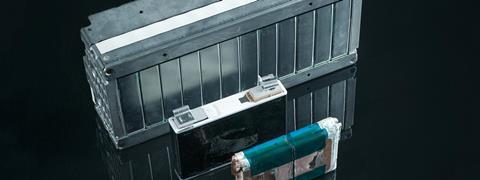
Three companies have signed a letter of intent to create a battery recycling cluster to serve the electric vehicle (EV) market.
The operation, which will focus on extracting reusable material – chiefly nickel and cobalt – from used batteries, will be set up near the nickel refinery run by Russia’s Nornickel in Harjavalta, Finland.
Referring to the lithium-ion form of EV batteries, the plant’s managing director Joni Hautojärvi, said: “This setup is ideal for sustainable processing of two of the main metals used in Li-ion batteries.
“Development of recycling solutions will not only support Nornickel’s strategy of further lowering its CO2 footprint and improving sustainability, but it is also essential to enable the industry to meet the growing demand of critical metals in the electric vehicle sector.”
German chemicals producer BASF intends to use recycled materials from processes developed by the partnership in its planned battery materials precursor plant at Harjavalta.
“The combination of battery materials production and recycling enables the circular economy by closing the loop,” says Tim Ingle, vice-president of precious metals refining, chemicals and battery recycling, at BASF.
“To drive electrification, we are focused on bringing solutions for high energy-density cathode active materials and high efficiency lithium extraction for battery recycling.”
The third company in the partnership is Finnish clean-energy provider Fortum which claims it has increased the recovery rate of key materials from lithium-ion batteries to more than 80% from 50% following acquisition of compatriot Crisolteq, which specialises in low-CO2 hydrometallurgical processing.
“By recycling valuable metals in lithium-ion batteries we reduce the environmental impact of electric car batteries by complementing the supply of cobalt, nickel and other critical metals from primary sources,” said Tero Holländer, head of business development at Fortum recycling and waste.
The companies point out using metals from recycled batteries to produce materials for new batteries offers significant CO2 reduction in EV production, while additional carbon dioxide savings can be achieved by using electricity from renewable sources in Finland for the recycling process.
The trio also says the partnership’s aims include fostering the production and use of responsibly produced recycled raw materials in the battery market.







































No comments yet